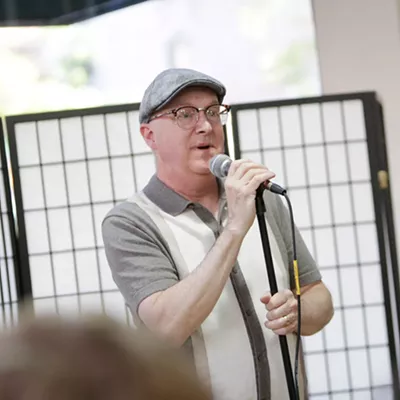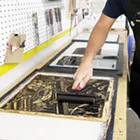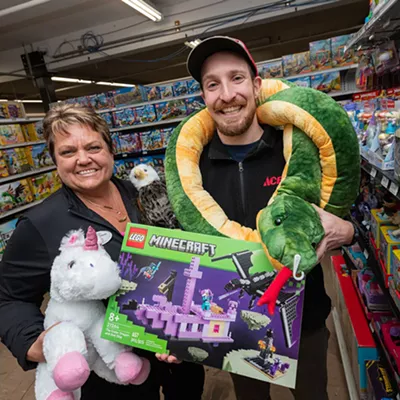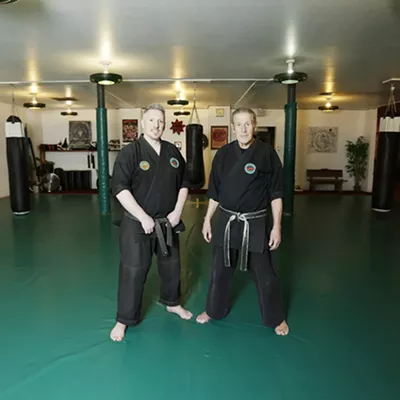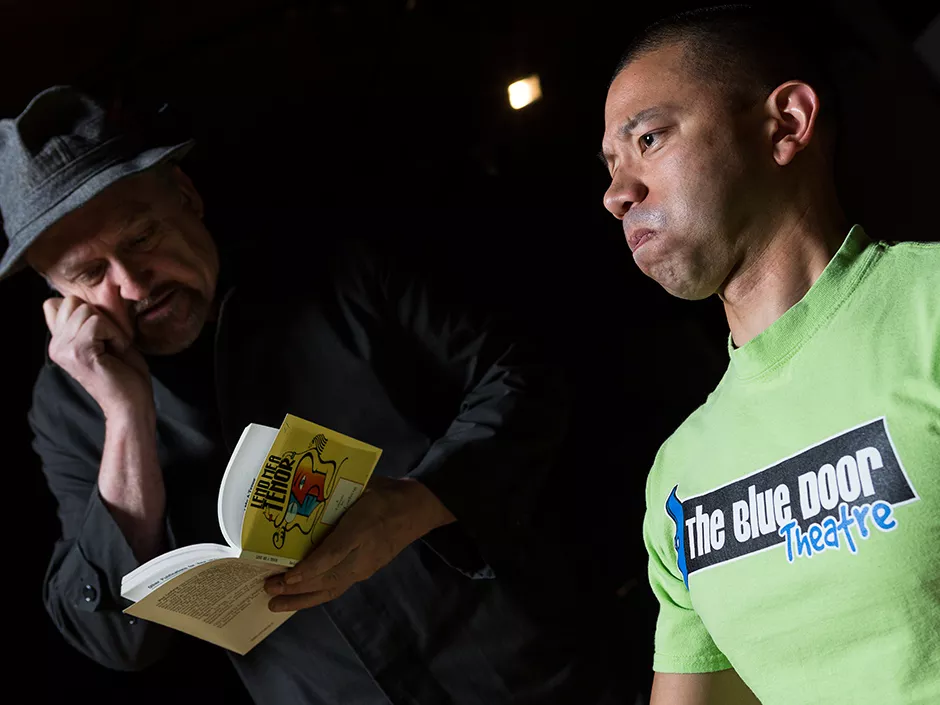
Back in March, as Frank Tano watched Speech and Debate at Interplayers, he witnessed a café scene in which a mug filled with water was accidentally spilled.
“It visibly spilled,” he says, “but nobody reacted to it onstage. To me, it seems very unnatural not to say, ‘Everybody saw this. This needs to be addressed.’ ”
His incredulity makes sense, given that Tano is the artistic director at Blue Door Theatre, the region’s most established improv venue. Though he enjoys and admires the performance of scripted material, he also finds it easy to spot its shortcomings. Like glossing over lines recited out of sequence. Or ignoring spilled water.
“For me, as an improviser, even when we’re miming stuff, if I have a mug and I go like this” — he swings his fist back and forth — “someone’s going to go, ‘Oh, Frank’s character just threw liquid all over the stage. I have to react to that.’”
Recalling an exercise pioneered by the Upright Citizens Brigade, it occurred to Tano that scripted lines might offer fertile ground for improvisation, with constraint feeding creativity. He pitched the idea to Interplayers as ReMix, a collaboration featuring the professional theater’s actors alongside Blue Door’s all-volunteer cast. In short, it would mark the spot where “improv and scripted theater collide.”
“There’s a short-form game called ‘scene on book,’” Tano explains, “where one improviser has some prewritten material, be it a novel or a script, and they’re just reading blindly out of that while an improviser tries to justify it and make a scene out of it. This is a more invested version of that. There’s one actor onstage who’s doing half of a scripted scene, and the improviser is basically in charge of doing the other half.”
The very nature of improv is spontaneous. But it’s a spontaneity that takes practice. In one trial run for ReMix (the texts used on the night will remain a secret to the improvisers), there occurred what Tano describes as “synchronicity moments” — points where “things just sort of click.
“As the other actor was talking about how someone is turning blue, I decided I was going to hold my breath. They were referring to somebody else, but because of the way the scene was, it was now me,” he says. And that synchronicity happens more often than you think. Tano compares it to another short-form improv game that invites audience members to write phrases on paper, which are then randomly pulled out of a hat. The Blue Door players are never sure what will be drawn, especially if the audience is in an inventive mood, but there are many times when the action and phrases mesh so well they might have been paired from the start.
“[ReMix] is something I’ve wanted to do ever since I found out this form existed,” he says. “But the Blue Door players can’t necessarily pull it off, because there are only a few of us that are actors that are good at memorizing things. It seemed like the best way for us to combine both houses and work together.”
Tano names himself as one Blue Door actor who falls short when it comes to memorizing lines. Along with the inability to keep himself from reacting to spilled drinks and his urge to “explore what’s in the next room,” it’s just one more reason why he opted for improv. During ReMix, those theatrical liabilities will become comedic assets — if they can pull it off.
“They’re excited, we’re excited, so we’ll just see how it works,” says Tano.
ReMix • June 20, July 18, Aug. 15 at 7:30 pm • $15 ($12 students, $10 groups of 8+) • Interplayers • 174 S. Howard St. • 455-7529 • interplayerstheatre.org






